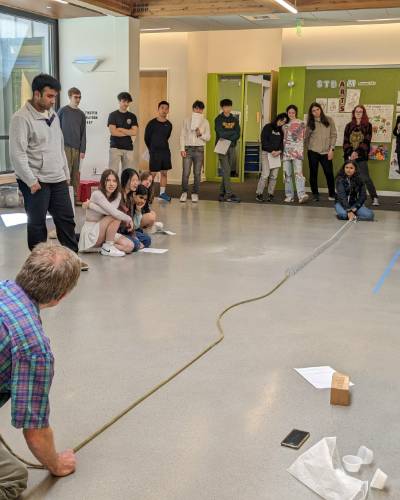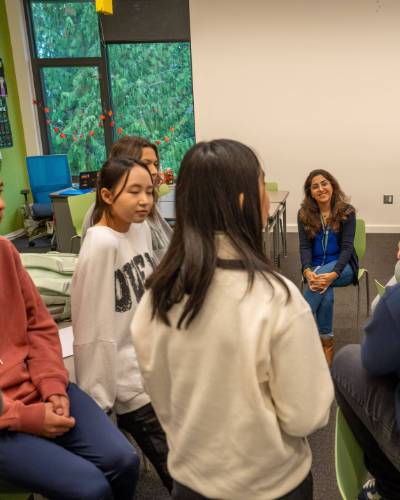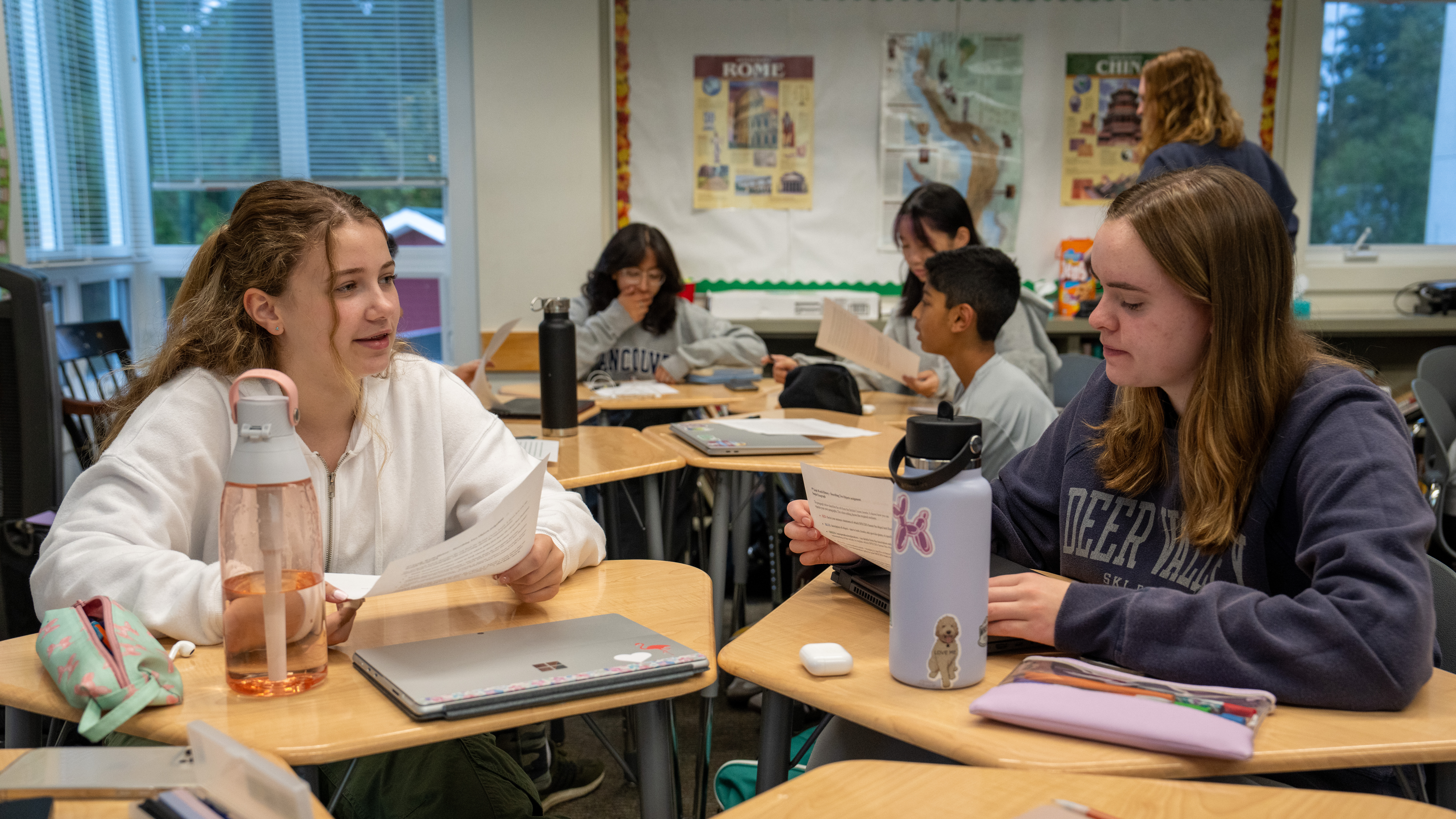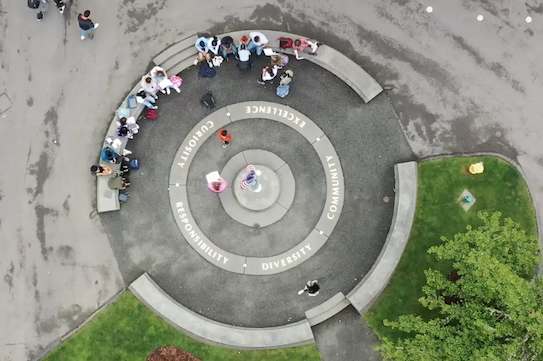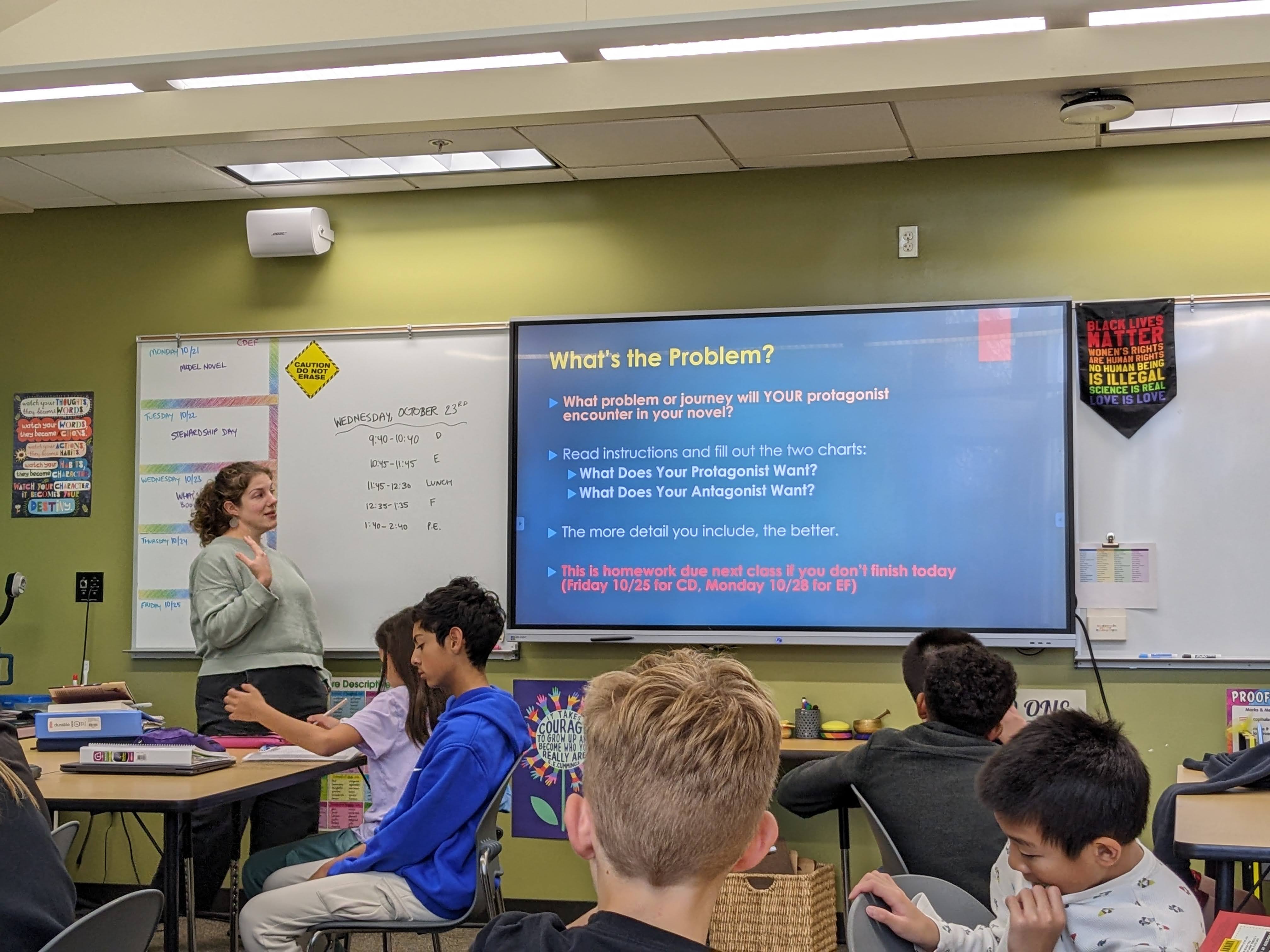Working at Overlake
Employees at The Overlake School are part of a community that has been contributing to the next generation for generations. Since 1967, Overlake has focused on educating students for an ever-changing world. Our faculty and staff are affectionately known as Owls, and join a community that believes in our values of Compassion, Curiosity, Inclusion & Equity, Integrity, and Mutual Respect.
We believe in measuring what matters. That's why our data dashboards here provide real-time data helping us illuminate where we need to continue our work in attracting and retaining top talent.
Current Job Openings
Click here to view and apply to our current employment opportunities.
The Overlake School is committed to diversity and does not discriminate on the basis of race, religion, national or ethnic origin, socio-economic status, gender, sexual orientation, or disability in the administration of its educational policies, financial aid, employment, and other school-administered programs.
Employees at Overlake receive a generous compensation package that includes benefits for both full and part-time employment, such as $5 employee-only health plans (for full-time employees), HSA & FSA programs, tiered 403(b) contribution, various disability and life insurance plans, paid holidays, on-site health and wellness resources, free breakfast & lunch, and so much more! Click here for a full list of benefits.
- $5 employee premium for all medical plans
- 100% employee coverage for vision and dental
- 35% of dependent coverage covered by school
- Premiums prorated accordingly for those working less than 75% FTE
- 13 Paid Holidays for all employees
- 10 to 20 days of vacation based on tenure and position for full time 12-month staff and administrators
- 10 days away from work for school year faculty and staff
- 1 hour away from work for every 40 hours worked for temporary and seasonal employees
- 5 to 10% employer contribution based on years of service and employee contribution with immediate vesting
- Employee Assistance Program
- Life Insurance
- Long Term Disability
- Short Term Disability
- Free Parking
- Use of School Library
- New Employee Mentorship Program
- Includes yoga, personal wellness planning, and small group athletic training.
- $1850 meal allowance per year to use on breakfast, lunch, and snacks
- Generous allowance for continuing education
- Sabbatical Program eligibility after 7 years for faculty
Overlake's definition of well-being
At Overlake, we aspire to prioritize the well-being of all community members, including our students, employees, and parents/guardians. Well-being is a series of skills or abilities that form a critical foundation for success, belonging, and thriving. Our definition includes numerous types of well-being, and we hope individuals can fluidly prioritize and re-prioritize each component to ultimately find holistic well-being. We define well-being for our community members as follows:
- Social Well-being is the ability to build healthy relationships and genuine connections while maintaining boundaries through verbal and non-verbal communication.
- Physical Well-being is the ability to prioritize and maintain practices that contribute to a healthy body and mind, encompassing regular exercise, balanced nutrition, and sufficient restorative sleep. It includes fostering habits that optimize physical health to promote overall vitality and resilience.
- Academic/Intellectual Well-being is the ability to expand knowledge and support lifelong learning. It includes balancing academic and professional workloads, preparing and organizing for the future, utilizing resources to make decisions, demonstrating curiosity, welcoming new academic and professional challenges, and meeting academic and professional goals in a healthy way.
- Community Well-being is the ability to cultivate a sense of shared responsibility for our community and campus, fostering belonging by building cultural awareness, positive relationships, and respectful interactions. It also includes instilling a sense of pride in our community and nurturing an environment where everyone feels valued, empowered, and has a sense of belonging.
- Emotional Well-being is the ability to be aware of emotions in self and others, giving all the permission to feel and express emotion, building psychological habits and resources to build resilience, and executing strategies that help build mindfulness and find joy.

